Project Labor Agreements (PLAs): What Contractors Need to Know
Levelset
FEBRUARY 21, 2022
In early February 2022, President Biden signed an executive order requiring project labor agreements (PLAs) on all federal projects over $35 million. This means contractors working on eligible projects should expect to pay more in labor and benefits and may have to enroll their workers with a union, even if they’re an open shop.


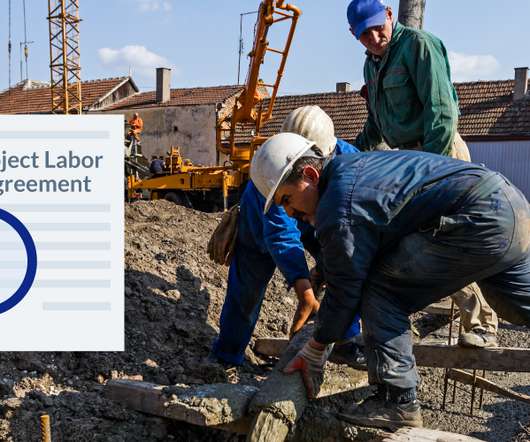

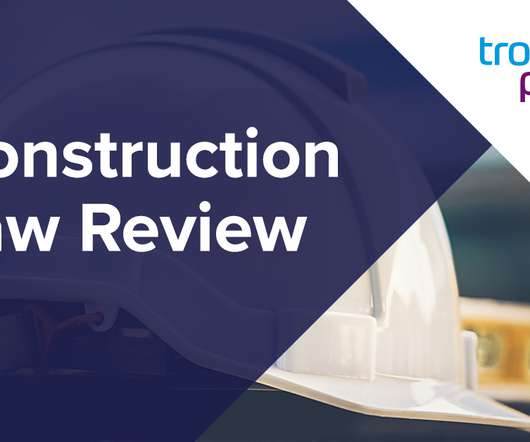
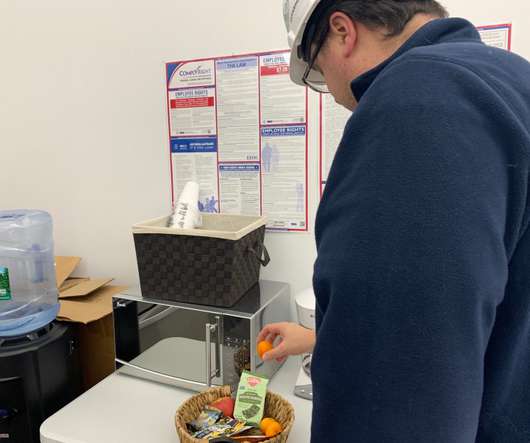
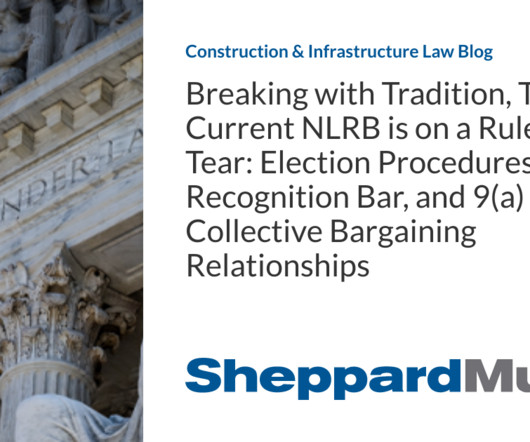





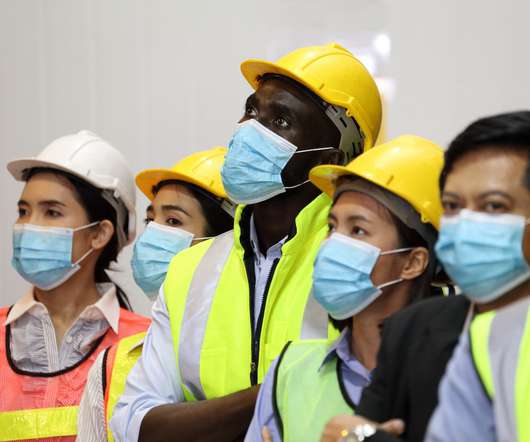


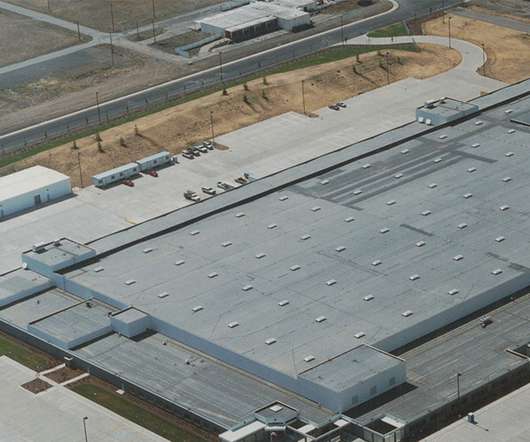









Let's personalize your content